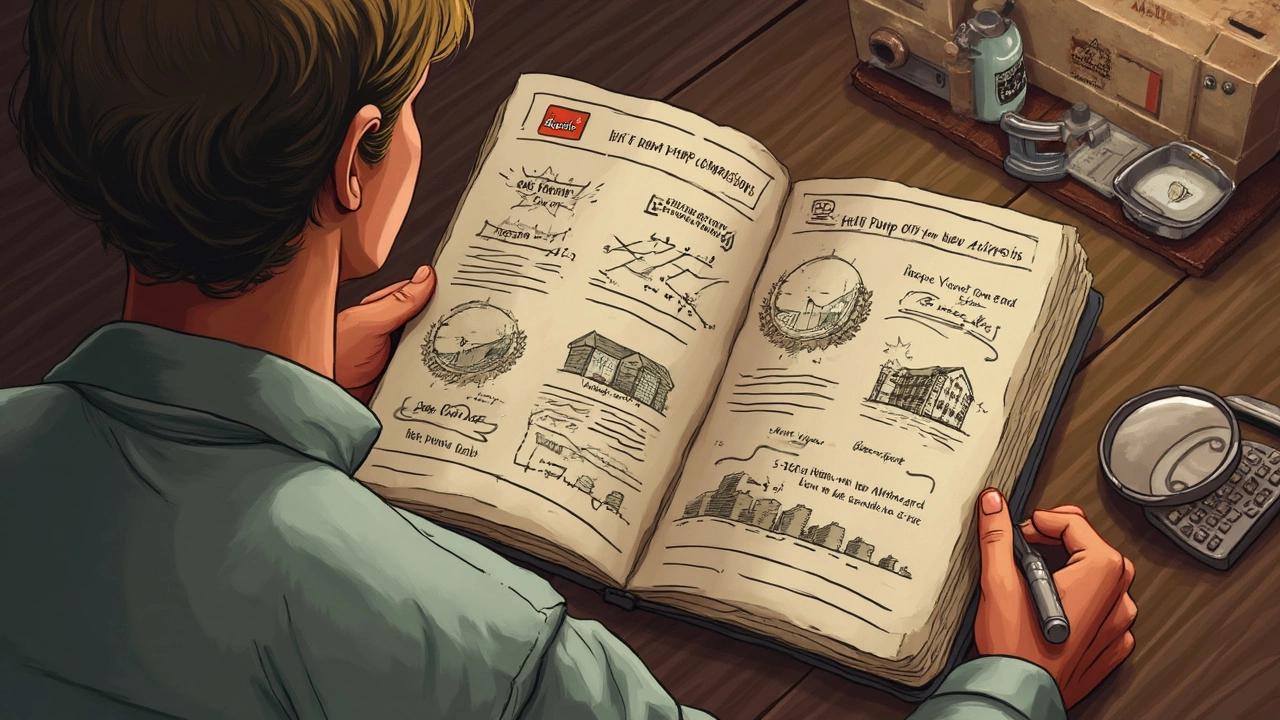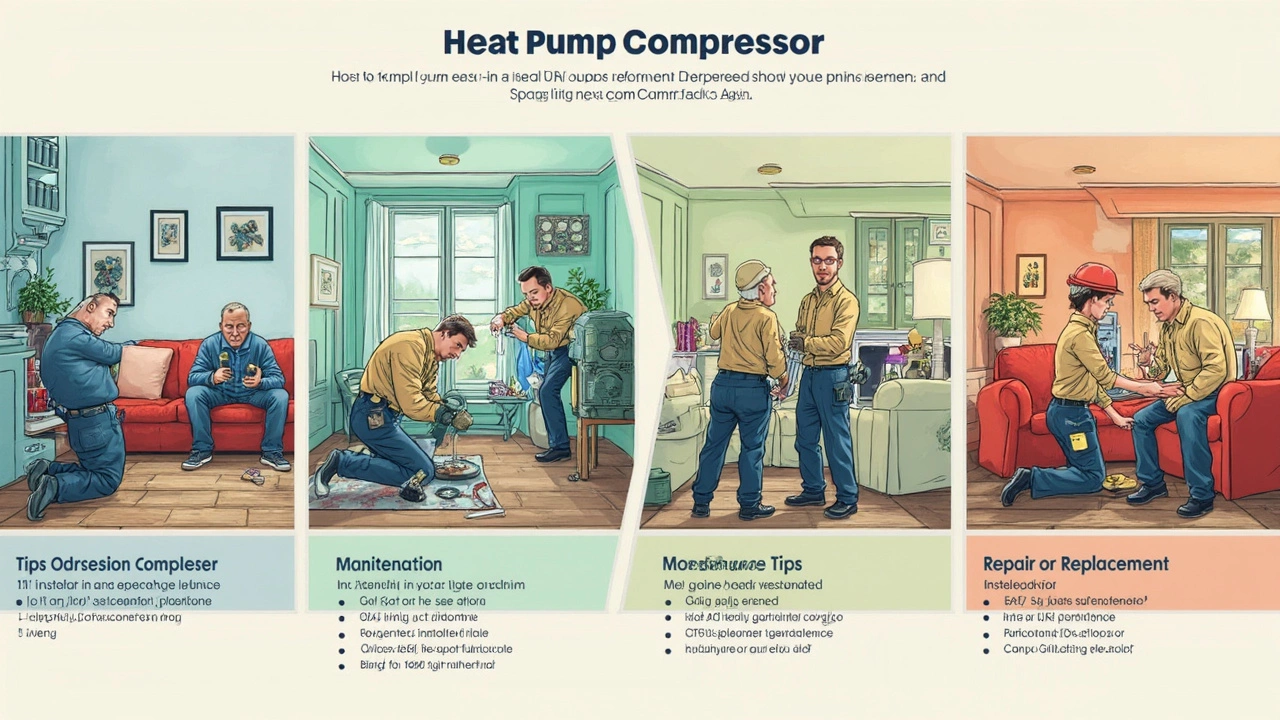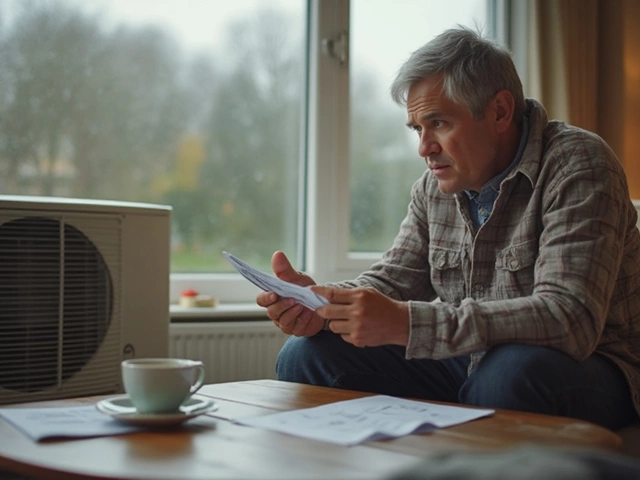When it comes to heat pumps, the compressor is like the heart of the system—pumping refrigerant through the coils and making heat exchange possible. If yours is on the fritz, you’re probably wondering how much it’ll cost to replace. The price tag can vary quite a bit, depending on a few key factors.
First off, brand matters. Some brands might have compressors that are more expensive but come with reliability and efficiency. Then, there’s capacity. A larger compressor for a bigger space naturally costs more. Don’t forget about warranties—they can add to the price upfront but might save you in the long run.
So how much are we talking? On average, you're looking at a range from $500 to $1,500 just for the compressor itself. That doesn’t even factor in the installation costs! Hiring a professional is usually a good idea to make sure everything's fitted right, which could be an additional $500 or more.
- Understanding the Role of a Heat Pump Compressor
- Factors Influencing Compressor Cost
- Average Price Ranges
- DIY vs Professional Installation
- Maintenance Tips to Extend Compressor Life
Understanding the Role of a Heat Pump Compressor
Ever heard the phrase 'the heart of the system'? That's exactly what a heat pump compressor is in your heating and cooling setup. It’s not just a random piece of machinery; it plays a crucial role in keeping your home comfortable year-round.
So, what does it actually do? Well, it circulates refrigerant through the system's coils. This refrigerant absorbs and releases heat as it cycles through your pump—pretty much why your home feels warm when you crank up the heat or cool when you want some breeze. It’s compressing the refrigerant to make everything tick.
Why Compressing Matters
The compression process is where the magic happens. By compressing the refrigerant, the compressor increases the temperature of the gas, making it easier to transfer heat. Afterward, the hot gas travels through the coils where it's either absorbed into your home's air or released outside, depending on whether you're heating or cooling.
Impact on Efficiency
A strong compressor means better efficiency. A well-functioning compressor ensures your system doesn’t have to work overtime, which can lower your energy bills. It’s a lot like making sure your car engine runs smoothly for better gas mileage.
What If It Fails?
A dead compressor spells trouble. Without it, your heat pump can't cycle refrigerant and you'll definitely notice the chill or heat creeping in. A failing compressor can also lead to other issues, like strange noises or increased energy consumption.
Knowing all this, it’s clear why the compressor isn't something to ignore. And while heat pump repair for compressors can be pricey, keeping yours in top shape can save you a heap of hassle later on.
Factors Influencing Compressor Cost
When you're weighing the price of a compressor, there are a few critical factors that can really influence how much you end up paying. Understanding these can help in making a smarter choice.
1. Brand and Quality
The brand of the heat pump plays a significant role. Well-known brands often come with higher price tags due to their reputation for quality and durability. But the added cost often translates to better efficiency and a longer lifespan.
2. Compressor Capacity
The capacity of the compressor, measured in tons, impacts the cost. Larger spaces require compressors with higher capacity, which can bump up the price. If your home is larger, anticipate a heftier investment.
3. Type of Compressor
There are different types of compressors: single-stage, two-stage, and variable speed. Single-stage models are usually the most affordable, while variable speed compressors, known for their efficiency and flexibility, tend to be pricier.
4. Warranty and Extras
Warranties can add to the upfront costs but offer peace of mind. A longer warranty might mean less out-of-pocket in the future for unexpected repairs. Some packages might also include extras like free installation or maintenance which can affect overall pricing.
5. Seasonal Factors
Believe it or not, the time of year can influence costs as well. Demand can spike during extreme weather seasons, potentially pushing up costs. If possible, plan compressor purchases in the off-season.
| Type | Price Range ($) |
|---|---|
| Single-Stage | 500 - 900 |
| Two-Stage | 900 - 1400 |
| Variable Speed | 1400+ |
Taking these factors into account can help you plan better, ensuring that you're not only getting a fair price but also a heat pump compressor that fits your needs. Remember, a little research can save a lot of cash and hassle in the long run.

Average Price Ranges
When you're diving into the world of heat pump repairs, specifically compressors, expect a bit of a spread in pricing. It's not a one-size-fits-all situation, and several elements play into what you'll ultimately have to shell out.
Typical Costs for Compressors
The base cost for a compressor generally lands between $500 and $1,500. This depends on the model and capacity you need. If we're talking about high-end brands, it might be closer to that top end, but more budget-friendly options can provide good value as well.
Here's a simple rundown on the ballpark estimates for different capacities:
| Capacity (Tons) | Estimated Cost Range ($) |
|---|---|
| 1.5 - 2 | 500 - 800 |
| 2.5 - 3 | 800 - 1,200 |
| 3.5 - 5 | 1,000 - 1,500 |
Installation and Additional Costs
Remember, you're not just paying for the compressor itself. Installation can add another $500 to $1,000, depending on the complexity of the job and your local rates. If you're thinking of going the DIY route, it's best left to the pros unless you're an experienced HVAC tech.
Warranty and Long-Term Value
Spending a bit more for models with better warranties might seem like a drag initially, but it could save you from shelling out even more cash down the line. Some companies offer 10-year coverage, which can be a real lifesaver if something goes wrong.
Don't forget other potential factors like refrigerant costs, if top-offs are necessary, and any specific system needs that could raise the final tally. A quick chat with a HVAC expert before purchase can help outline the total expected outlay.
DIY vs Professional Installation
Thinking about installing a heat pump compressor yourself? While it might save you some cash upfront, it’s a job that can spiral out of control if you’re not prepared. Let’s break down what could sway you one way or the other.
Why DIY Could Be Tempting
Doing it yourself can be cheaper and gives you control over the pace. If you're handy and have the right tools, this might sound like an adventure. There are plenty of online guides and videos showing you how to replace a compressor. It might give you a sense of accomplishment knowing you didn't need to call in someone else.
But before grabbing a wrench, consider this nugget from the HVAC tech world:
"Even seasoned DIY enthusiasts sometimes hit snags with HVAC systems that they didn’t anticipate," says John Simmons, a veteran HVAC contractor. "What seems straightforward can quickly escalate, especially when refrigerant is involved."
The Case for Hiring a Professional
Here’s where the pros come in. They have the training and experience to handle not just the compressor but the full system. Getting a professional install can often prevent voiding any warranties your new compressor might carry.
What You Get with a Pro
- Warranty adherence: Ensures any terms are followed to a tee.
- Efficiency: They often finish quicker, saving you time.
- Safety checks: They can spot potential problems elsewhere in the system you might miss.
- Peace of mind: A job done by a pro means you don't have to second-guess the installation.
At the end of the day, installing a compressor is no small feat. If in doubt, call a pro. It's about balancing cost with the potential headhaches.

Maintenance Tips to Extend Compressor Life
Keeping your heat pump in tip-top shape can feel like a chore, but trust me, it's worth it. A well-maintained compressor lasts longer and saves on unexpected breakdown costs. Here’s how you can extend its lifespan significantly.
Regular Filter Changes
One of the simplest things you can do is change or clean the filters regularly. Filters trap dust and dirt, and if they’re clogged, your compressor has to work extra hard. Swap them out every one to three months, depending on usage and if you have pets.
Keep Coils Clean
Both indoor and outdoor coils need to be free of dirt. A clogged coil can limit the heat exchange, leading to an overworked compressor. Gently spray the coils with water or use a coil cleaner but be sure to cut power to the unit first.
Check Refrigerant Levels
Too little refrigerant causes the compressor to overheat, while too much can flood it. Either situation can cause damage. This is more of a professional task, so schedule regular service checks to make sure levels are just right.
Inspect and Clear Surrounding Area
For outdoor units, keep at least two feet of clearance around the unit. Remove any debris, leaves, or twigs that can block the airflow. Trimming bushes and grass around the unit helps keep air moving freely.
Annual Professional Check-Up
Even with diligent DIY maintenance, a yearly professional inspection is a smart move. An HVAC technician can spot issues before they become serious, saving you down the road.
| Maintenance Task | Recommended Frequency |
|---|---|
| Filter Changes | Every 1-3 months |
| Coil Cleaning | Annually |
| Refrigerant Check | Annually |
| Professional Check-Up | Annually |
Stick to these steps, and you'll likely get more years out of your heat pump compressor. It’s a little effort for a lot of reward when you think about long-term savings and peace of mind.





